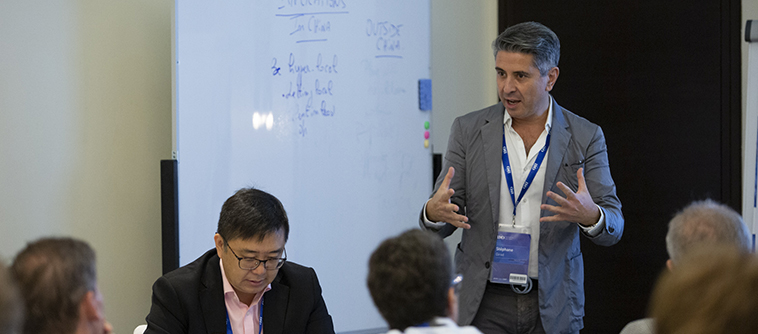
In recent years we have witnessed a seemingly endless stream of powerful, innovative businesses and networks coming out of China.
Chinese e-commerce giant Alibaba and rival Tencent Holdings Limited, for example, are already among the top 10 largest companies in the world.
“The way business is done around the world is changing. But China is changing the rules of the game in terms of competition and cooperation,” said Stephane Girod, Professor of Strategy and Organizational Innovation at IMD during Orchestrating Winning Performance in Dubai.
How has China taken such a commanding position in terms of innovation and disruption? Girod highlighted five golden rules that have fueled China’s progress.
Golden rule 1: big data
China recognizes the power of big data-powered partnerships. Companies and conglomerates are increasingly moving from B2B to B2C modes of operating, through innovation and building a network of partnerships that is concentrated on data collection.
Harvesting this data is seen as key in helping to create targeted advertising and to build relationships with consumers. WeChat, for example, knows what home insurance a consumer buys, what news they read, and what relationships they have. These internet giants can use these data patterns to target advertising and forge stronger, lasting interactions with consumers.
Golden rule 2: customer centricity
Chinese companies place a high value on customer relations, with innovators focused on the principle of ‘listen, innovate and personalize’. In China’s hyper-competitive environment, every company is trying to outdo each other through the personalization of innovation – and this personalization is about data.
Golden rule 3: micro-influencers
A new marketing innovation is sweeping across China. Traditionally in the West, advertisers use promotions as the primary tool for driving attention to a brand, but China favors a new way of scaling impactful content that can be viewed widely.
Enter the micro-influencers. Unlike high-profile social media stars with millions of followers, micro-influencers are more approachable and relatable with smaller, yet dedicated fanbases.
Chinese companies are increasingly utilizing a wide network of these micro-influencers to interpret and personalize marketing campaigns in a way that resonates with their audience.
Golden rule 4: be fast, be first
In the race for technological dominance, being fast and first is paramount – and another way in which Chinese businesses rule.
Take the example of Royole Corp, a manufacturer of flexible displays and smart devices. After just six-years of operating, the company was last year valued at about $5 billion.
With more than 300 patents under its belt, the company spends a vast amount on R&D – representing about 70% of its total workforce – and it is a prime example of how the concept of speed and investment in innovation should not be underestimated.
Golden rule 5: be super local – but also global
Chinese companies are also changing the rules of the game in overseas investment.
When looking for overseas companies to invest in, Alibaba and its peers look for companies which they believe have full competence in the market in which they operate.
In March 2015, Alibaba bought a huge chunk of Paytm, an Indian e-commerce payment system. Alibaba knew it was their competence in QR-code-based systems that would make the difference. It led to the company becoming the third-largest e-commerce platform in the country; instantly disrupting PayPal’s dominance in India.
What we can learn from China
So, what lessons can this economic powerhouse teach those of us operating inside and outside of China?
- Appreciate the power of big data, forge alliances with Chinese digital giants and relocate digital innovators to China to benefit from its expertise;
- Empower the local workforce in China, and focus on customer-centric, agile business models;
- Learn from China’s new marketing mindset, its use of micro-influencers and the shift from traditional promotional tools to content-based engagement; and
- Invest in R&D, speed up patenting processes in China, and collaborate with nation states to invest in industrial policies



